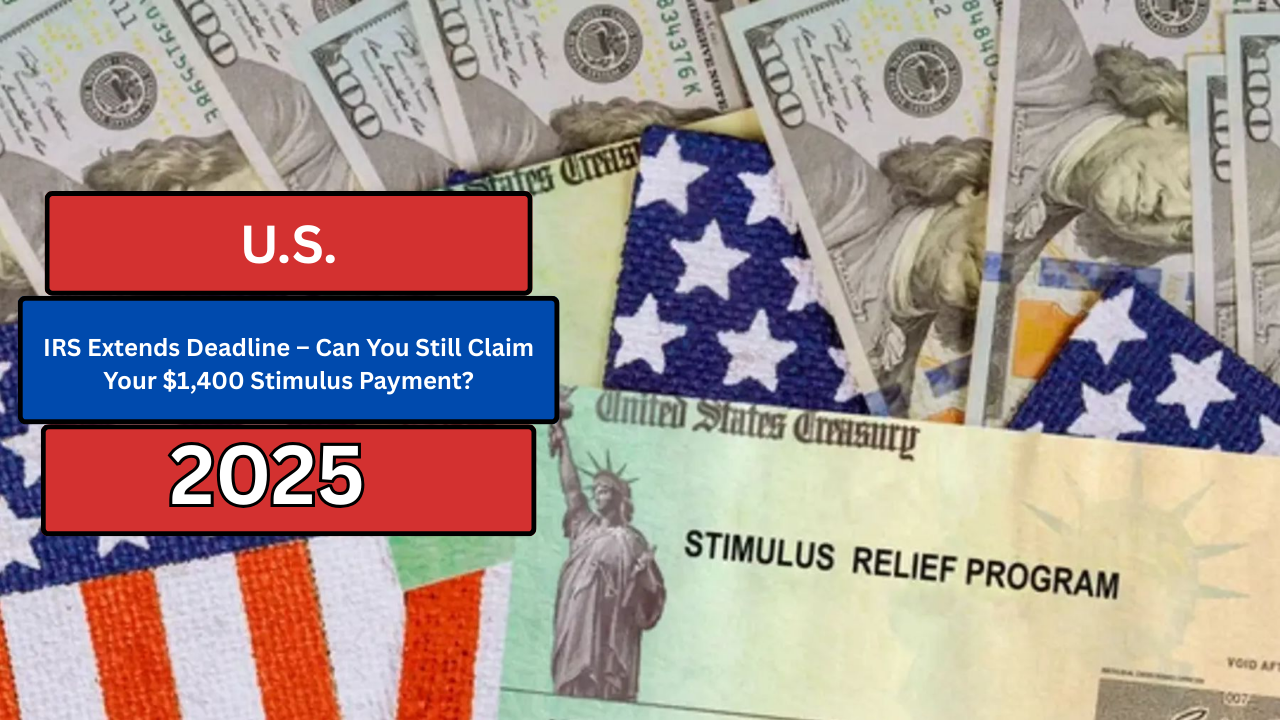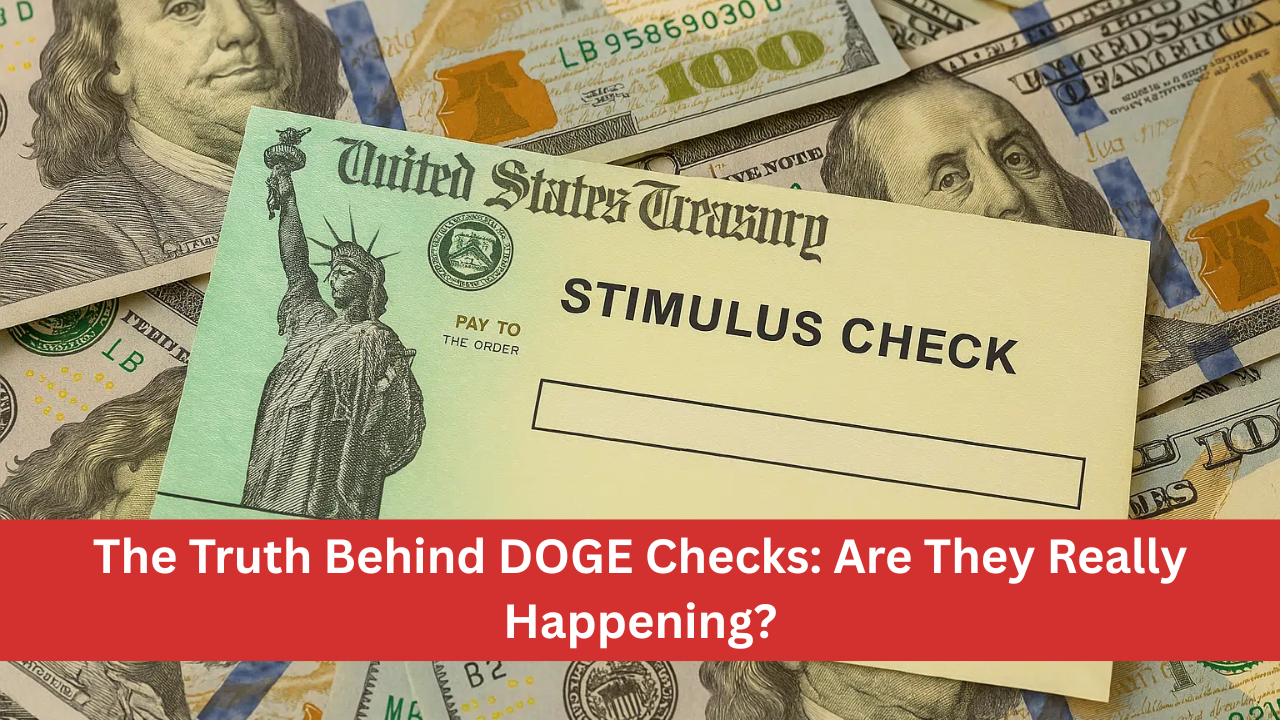As the COVID-19 pandemic ravaged economies, governments around the world took steps to provide financial relief to their citizens. In the U.S., the federal government issued stimulus checks to eligible individuals as part of various relief packages.
One of the most significant measures was the third round of Economic Impact Payments (EIP), which provided Americans with up to $1,400 each.
This payment, known as the “stimulus check,” was designed to offer financial relief to individuals and families during uncertain times. More than 1 million people became eligible for this payment, with the deadline initially set for December 2024.
For those who missed the deadline, the IRS (Internal Revenue Service) ensured that if you filed your 2021 tax returns, you could still receive the $1,400 payment in 2025.
However, the clock is now ticking down, and many individuals are left wondering if they can still claim the funds. With the April 15 deadline for requesting tax extensions now passed, the IRS has made it clear that no further claims will be accepted.
In this article, we break down the IRS’s stance on extensions, deadlines, and what happens to the $1,400 payment after April 15.
The IRS Stimulus Initiative: A Lifeline for Many
The stimulus checks, also known as the Economic Impact Payments, were introduced by the U.S. government to help individuals and families facing financial hardship due to the pandemic.
The third round of payments was structured to provide $1,400 per individual, including qualifying dependents. This initiative aimed to support those who had suffered from job losses, reduced working hours, or other pandemic-related financial challenges.
The IRS, as the body responsible for managing the distribution of these funds, took extensive steps to ensure that those eligible would receive their payments. In 2024, the IRS made it clear that if individuals had not yet claimed their $1,400 payment, they would need to file their 2021 tax returns to qualify.
The Deadline: April 15 and Tax Filing Extensions
While the opportunity to claim the stimulus payment seemed like it was ending for many by December 2024, the IRS provided an additional window for taxpayers.
For those who filed a tax extension, the deadline to submit their returns was extended into 2025. However, the catch was clear: the final cutoff for claiming the payment was April 15, 2025.
This extended deadline was an attempt by the IRS to reach taxpayers who had not yet filed their returns. The IRS emphasized that those who submitted their returns before this date would be able to receive the $1,400 stimulus check. Payments would be disbursed either via direct deposit (if bank details were provided) or as a paper check.
Why the Deadline Matters?
The April 15 deadline was more than just a formal deadline. It marked the final opportunity for eligible individuals to claim their $1,400 payment.
The IRS spokesperson made it clear that after this date, no further claims would be accepted. Any funds that were unclaimed by taxpayers would be returned to the U.S. Department of the Treasury.
Additionally, the IRS provides a three-year federal deadline for individuals seeking to recover tax refunds. This means that if a taxpayer missed the April 15 deadline, they would lose the chance to access the $1,400 stimulus check. For those who have been putting off filing their tax returns, this deadline has now passed.
Can You Still Claim the $1,400 Stimulus Check if You Requested an Extension?

For many, the question remains: “If I requested a tax extension, can I still claim my $1,400 stimulus check?” Unfortunately, the answer is no.
The IRS has made it clear that, regardless of whether or not you requested an extension, the final date to claim the stimulus payment was April 15. Even if you filed an extension and did not file your returns by the deadline, you will not be able to claim the payment.
Who Was Eligible for the $1,400 Payment?
The eligibility for the $1,400 stimulus check was determined based on an individual’s adjusted gross income (AGI) for the 2021 tax year.
For single filers, the income threshold was set at $75,000. For married couples filing jointly, the threshold was $150,000. If your AGI exceeded these amounts, you were not eligible for the payment.
For those who met the eligibility criteria, the IRS processed and distributed payments through the Recovery Rebate Credit. This credit allowed individuals to claim their stimulus check as part of their 2021 tax filing. If you missed the filing deadline, you were no longer able to claim the benefit.
Impact of the IRS Deadline on Refunds
According to IRS estimates, over 1 million Americans were expected to receive refunds totaling more than $1 billion. This money was intended to offer financial relief and help individuals recover from the economic challenges brought on by the pandemic.
Unfortunately, if you had already received a refund or stimulus payment in a previous year, you would no longer be eligible for the $1,400 payment.
The IRS has been careful to ensure that the funds are distributed fairly. Individuals who had already received this benefit will not be eligible for duplicate payments.
Why Timely Filing Matters?
The IRS’s rules on tax filing and stimulus payments emphasize the importance of filing returns on time. This allows individuals to access funds that they may desperately need.
The funds provided through the Recovery Rebate Credit were vital for millions of Americans, and by missing the deadline, many individuals lost the chance to benefit from this financial support.
Conclusion: The $1,400 Stimulus Opportunity Has Passed
For those who missed the April 15 deadline, there is no more time to claim the $1,400 stimulus check.
The funds are no longer available, and the IRS has confirmed that those who did not file by the deadline will not be able to collect their payment. This emphasizes the importance of timely tax filing and awareness of government deadlines.
If you were eligible and did not claim your stimulus, it is now too late to act. Moving forward, it is crucial to be aware of similar deadlines and take the necessary steps to ensure you don’t miss out on financial support in future relief programs.



